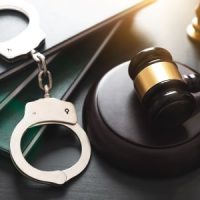The Child Hearsay Rule in Florida

As a general rule, hearsay evidence is not admissible in a Florida criminal trial. Hearsay is basically second-hand information. For example, a person is allowed to testify as to what they personally observed or witnessed. But they usually cannot testify as to what someone else told them happened.
Here is a simple example. A defendant is charged with murder. A witness can testify they saw the defendant shoot the victim. But if the witness testified, “Someone else told me they saw the defendant shoot the victim,” that is inadmissible hearsay. Basically, hearsay testimony cannot be used to prove the truth of the matter asserted.
When Is a Child’s Out-of-Court Statements Admissible in a Criminal Trial?
There are, however, a number of exceptions to the hearsay rule in Florida law. One of the more notable ones involves statements made by a child victim to a third party. This exception frequently comes up in criminal prosecutions for child abuse and child sex crimes, so it is important to understand how it works.
Section 90.803 of the Florida Statutes establishes the child hearsay rule. The rule allows admission of an out-of-court statement made by a child to another person under the following conditions:
- the child has a physical, mental, emotional, or development age of 16 or younger;
- the child made a statement describing an act of abuse, neglect, or any unlawful sexual act on, involving, or in the child’s presence; and
- the child made the out-of-court statement to a person who is considered trustworthy; and
- the child testifies at the defendant’s trial, or if they are unavailable, there is other evidence presented to corroborate the child’s allegations.
A defendant has the right under Section 90.803 to receive written notice at least 10 days before trial that an out-of-court statement will be offered as evidence. This notice must include a written copy detailing the content of the child’s statement, the time when the statement was made, and the circumstances under which the statement’s reliability can be ascertained.
It is then up to the trial judge to make “specific findings of fact” regarding the admissibility of the child hearsay. Keep in mind, this includes making specific findings as to whether the person offering the hearsay is trustworthy. But the judge is not necessarily required to question the child before making a final determination.
Another thing to note is that the child hearsay rule provides a limited exception to the inadmissibility of hearsay evidence. The rule cannot be used to admit “hearsay within hearsay” or double hearsay. In other words, a person can testify that a child told them about an act of abuse. But a person could not testify as to what the child might have told a third party about abuse.
Contact an Orlando Sex Crimes Defense Attorney Today
Criminal cases involving child accusers are often difficult for all parties involved. If you have been accused of a crime against a child, it is therefore even more crucial that you seek advice and representation from an experienced Orlando criminal defense attorney. Contact Joshi Law, PA, today to schedule a free initial consultation.

